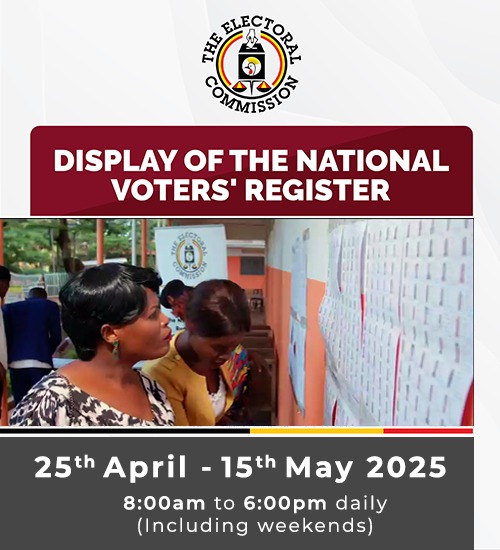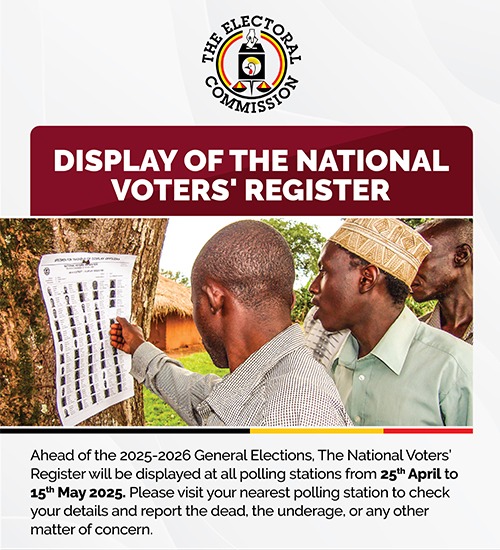Kampala, Uganda– In an unforeseen diplomatic development, the Democratic Republic of Congo (DRC) recalled its ambassadors from Kenya and Tanzania last year for urgent consultations, casting a shadow over the stability of the East African Community (EAC), VOA News has reported.
The diplomatic tension comes on the heels of establishing a new Congolese military alliance, the Congo River Alliance, including rebel factions, launched in the Kenyan capital, Nairobi.
Alain Tshibanda, the spokesperson for Congo’s foreign ministry, announced the recall via the X social media platform, citing the formation of the Congo River Alliance in Nairobi as the primary catalyst.
The alliance, according to VOA News, is spearheaded by Congolese politicians, M23 rebels, and former election commission chief Corneille Nangaa, and seeks to unite various armed groups, militias, and political organizations.
The ambassador to Tanzania was recalled due to Tanzania hosting the East African Community’s headquarters, of which Congo is a member.
Simultaneously, the head of the Kenyan embassy was summoned to the foreign ministry in Kinshasa, prompting speculation on the diplomatic repercussions of this unprecedented move.
New Military Alliance Stirs Regional Concerns
According to the story, the Congo River Alliance‘s launch in Nairobi has immediately raised regional eyebrows, signaling potential shifts in geopolitical dynamics.
Mr. Nangaa, who faced sanctions from the U.S. for corruption and obstructing the 2018 election, emphasized the alliance’s pursuit of a lasting solution, underlining the imperative for diverse Congolese groups to coexist peacefully.
However, the inclusion of rebel factions, most notably the M23 rebels, within the alliance has triggered alarm bells about its broader implications for regional security.

Additionally, the emergence of the Congo River Alliance adds a layer of complexity to an already delicate regional landscape, especially considering that Congo is scheduled to hold critical presidential and legislative elections on December 20.
Bintou Keita, the head of the United Nations peacekeeping mission in Congo, has publicly expressed profound concern over creating this new political-military platform.
The development poses additional challenges in a region where insecurity has persisted for decades, fueled by ethnic rivalries, land disputes, and resource struggles with implications that stretch beyond national borders.
We should also recall that the East African Community Regional Force (EACRF) will have left the territory of the Democratic Republic of Congo (DRC) entirely by January 8, 2024, allowing local authorities to secure the troubled east.
In the same vein, the United Nations peacekeeping mission in the Democratic Republic of Congo (DRC), Monusco, is concluding its 20-year tenure amidst escalating security challenges in the eastern region.
Criticism had been mounting against Monusco, prompting its drawdown, which was initially set to commence after the national elections on December 20. The deteriorating security situation and dissatisfaction with the East African Community Regional Force, however, underscored the need for a strategic shift.
Amidst this backdrop, The Conversation reports that the Southern African Development Community (SADC), under the leadership of the South African military, is set to replace Monusco.
Thomas Mandrup, an expert in African security governance and South African military and foreign policy, sheds light on the motivations behind this transition and explores the challenges and opportunities that lie ahead for the new mission.

As the UN mission prepares to wind down, concerns about its efficacy have led to a reevaluation of the peacekeeping strategy in the region. The competitive dynamics between the East African Community and SADC member states for influence in the DRC add another layer of complexity to the evolving security landscape.
Notably, reports The Conversation, the DRC’s recent membership in the East African Community, and its historical trade ties with the region contribute to the intricate geopolitical considerations influencing the decision to entrust the new mission to the SADC, led by the South African military.
To understand this state of affairs and comprehend why the EAC regional security cooperation is facing challenges of this nature, we turn to a Ugandan scholar’s doctoral study submitted to the University of Singapore in 2014.
Analyzing the Crisis through a Ph.D. Lens
Titled; “Regional Security Cooperation in the East African Community,” the author, Dr. Ssebastiano Rwengabo Rutashoboroka, provided insights into the perplexity of international security cooperation within the East African Community.
Dr. Rwengabo set out to ask the question that member states collaborate on various transnational security issues but seemingly falter in addressing armed rebellions with profound regional security implications.
Dr. Rwengabo introduced the concept of Sovereignty Concerns (SCs) as pivotal in shaping cooperation outcomes.
These concerns, according to him, encompass fears of potential erosion of states’ sovereign authority, influencing their willingness to engage in cooperative efforts.
Could this explain why DRC has become skeptical of the regional integration, particularly with member states such as Rwanda?
The research findings reveal a paradox: while states are amenable to collaborating on coordination-problem security issues, they exhibit hesitation when confronted with critical sovereignty issues such as rebellions.
This explains the crisis of the M23 on DRC territory and the launch of the Congo River Alliance on Kenya territory that has threatened to tear regional cooperation efforts apart.
“This puzzle persists despite the expectation that states facing common security threats would naturally gravitate towards regional security solutions,” Dr. Rwengabo tells this writer.
Implications for the East African Community
The diplomatic tensions and the establishment of the Congo River Alliance as well as the deployment of the SADC forces, underscore the challenges in fostering regional security cooperation within the East African Community.

The unexpected recall of ambassadors and the regional concerns stemming from the new military alliance demand not only a closer examination of the geopolitical dynamics at play but also the idea of “Sovereignty Concerns” in which “ .
As the situation unfolds, stakeholders in the region will closely monitor diplomatic developments and assess the impact of the newly formed alliance on the stability of the East African Community.
With the just concluded presidential and legislative elections in the DRC adding another layer of complexity to an already intricate geopolitical landscape in East Africa, the findings of Dr. Rwengabo shed light on the nuanced interplay of sovereignty concerns and their influence on regional security cooperation.
His Findings
The intricate dance between national Sovereignty and Security Cooperation Prioritisation
The study identified a selective approach to security cooperation within the East African Community (EAC), where member states engage on certain transnational security issues such as terrorism and small arms proliferation. However, cooperation is avoided when it comes to transnational armed rebellions due to perceived threats to states’ political authority.

This explains the intricate relationship between DRC and the rest of the community particularly in expelling the EAC standby force and inviting an outside force commanded by the South African military.
Sovereignty Concerns as Determinants
Dr. Rwengabo’s findings underscore the crucial role of sovereignty concerns in shaping security cooperation outcomes. Sovereignty Bargains, influenced by concerns about compromising state sovereignty, play a decisive role in determining whether a particular security issue is included in the EAC’s agenda and whether cooperation modalities are established. Could this explain DRC’s suspicions regarding the conduct of Uganda, Kenya, and Rwanda as far as pacifying the Eastern region is concerned?
Coordination-Problem vs. Critical-Sovereignty Issues
The EAC seems to be faced with coordination problems in the face of critical sovereignty issues. Dr. Rwengabo’s study categorizes security issues into “coordination problem” and “critical sovereignty” categories.
“Cooperation is more likely on coordination-problem issues, such as terrorism and small arms proliferation, where states believe collaboration does not threaten their sovereign authority. In contrast, critical-sovereignty issues, notably transnational rebel conflicts, evoke concerns about compromising ultimate political authority, leading to a lack of cooperation,” he writes.
Impact of Sovereignty Bargains

Different sovereignty bargains rooted in Low-Level Sovereignty Concerns have resulted in the emergence of regional counterterrorism measures and controls against the proliferation of small arms. Conversely, High-Level Sovereignty Concerns hindered cooperation on rebel conflicts, as seen in judicial opposition and purposeful silence that absolved the EAC from involvement in specific conflicts. The diplomatic tension following the establishment of a new Congolese military alliance, the Congo River Alliance, inclusive of rebel factions, launched in the Kenyan capital, Nairobi, explains this point well.
Contention Between Cooperation and Political Authority
The findings highlight a fundamental tension between the imperative for security cooperation and the desire to preserve states’ meta-political authority. This tension is evident in the varying outcomes of cooperation, reflecting the nuanced interplay of sovereignty concerns and their impact on the EAC’s approach to regional security challenges.
Sovereignty and collective security interests will undoubtedly play a pivotal role in shaping the future trajectory of diplomatic relations in the East African region.
Dr. Rwengabo’s full paper can be accessed here and here
About The Author
Arinaitwe Rugyendo
Rugyendo is the Founder and Editor-in-Chief of ResearchFinds News. He’s an accomplished journalist with a rich background in the media industry in Uganda. With over two decades of experience, Rugyendo has held various roles including cab reporter, Bureau Chief, Managing Editor, and Digital Media Editor at renowned publications such as Daily Monitor and Red Pepper. Throughout his career, he has demonstrated a commitment to delivering high-quality journalism and staying at the forefront of media trends. In addition to his journalistic pursuits, Rugyendo is currently pursuing a Ph.D. in Journalism and Communication at Makerere University. He has been recognized for his outstanding leadership and commitment to social change as a Desmond Tutu Fellow and Crans Montana New Leader. Rugyendo also serves as the Chairman of Young Engineers Uganda and Uganda Premier League, showcasing his dedication to promoting excellence and growth in various fields. With a passion for driving innovation and pushing boundaries in media, Rugyendo continues to make significant contributions to the industry. His vast experience, academic pursuits, and leadership roles make him a respected figure in the Ugandan media landscape.
















